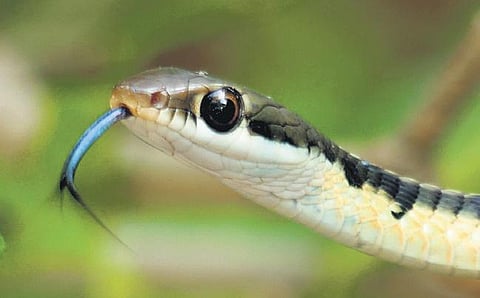

This week I would like to retell the story of Nala and Damayanti from the Mahabharata. It is a testament to the never-say-die human spirit when hit by fate. ‘Don’t give up easily’ is its enduring message.
Nala was the brave, handsome king of the Nishadas and a just ruler. His one vice was gambling. His cousin Pushkara excelled in it whereas Nala played for fun. Nala was also a herbalist and a skilled charioteer. He wrote the first ever cookbook known to the land—the Paaka Darpanam or ‘A Mirror to Cuisine’.
One day when out hunting, he saw a beautiful swan and was about to shoot it when the swan said, “Don’t shoot”. Nala put down his bow and arrow, amazed.
The swan said gratefully, “I will tell you about Princess Damayanti in return. She is the daughter of King Bheema of Vidarbha to the south of your kingdom. I have never seen such a beauty. She is intelligent, good-natured, and speaks kindly to all. Her father will soon hold a swayamvara so that she can choose a worthy husband.”
Nala’s eyes lit up. “Will you fly to Vidarbha and tell the princess about me?” he asked and the swan promised.
The swan flew to Damayanti and described Nala to her. She went away deeply impressed. Her father promised to invite Nala. But when the day arrived, Damayanti was shocked. The gods—Indra, Vayu, Agni, Yama and Varuna—each laid a claim to her by virtue of their divine status.
Damayanti spoke her mind.
“I am honoured by your attention, Immortals,” she said. ‘But I have accepted King Nala as my husband in my heart. Please let me marry him.”
The gods laughed. “Not so easily, Damayanti,” said Indra. “We will all stand in a row with Nala. You must pick him out from amongst us.”
The gods lined up with Nala and to Damayanti’s great fright, they all looked exactly like him. “It is our humanity that will let us find each other,” she thought. “The celestials are too perfect, their eyes don’t blink, their feet don’t touch the ground and they have no dust or sweat on them. Whereas Nala is just another human like me.”
Damayanti stepped forward and garlanded Nala. The disappointed gods trooped home. On the way they met Kali, the chief of the demi-god gandharvas.
“Too late, she has married Nala,” they jeered and went their way. Kali choked with spite. He could do nothing for twelve years since there was nothing incorrect in Nala’s behaviour. But one day, Nala made a slight error of judgement in a public case. Kali found a hold at last. He took over Nala’s better sense and lit the urge in him to gamble.
Nala got into a game of dice with Pushkara that very week. Whoever won would take the other’s kingdom. Within an hour of play, Nala was homeless.
Damayanti swiftly sent her children Indra and Indrasena to her parents in Vidarbha. She and Nala made their way on foot into the jungle, numbed with shock.
“I have let down Damayanti and my children,” thought Nala. He crept away while Damayanti slept.
Damayanti went into deep shock when she realised that she had been abandoned. She began to stoically move south, towards Vidarbha. Nala wandered deep into the jungle. He saw a magnificent snake caught in a forest fire and ran to pull it out. He found cooling herbs to put on its burns.
“Nala, you are a good man. Let me thank you,” said the snake. It leapt at Nala and bit him with its poisoned fangs. Choking and coughing, Nala began to vomit. He was now a misshapen dwarf.
“Do not be afraid, Nala. I have expelled the evil gandharva Kali from inside you with my poison. It was he who made you gamble, loading the dice so that you lost, because he wanted your wife.”
“Who are you and why have you changed me?”
“I am Karkotaka, king of the serpents. This disguise is to conceal your identity. You will regain your form when you are reunited with your wife. Go to King Rituparna of Ayodhya. He is a mathematical genius. Take service with him as his charioteer and learn about dice from him. Go back with that knowledge to Pushkara and win your kingdom back. The path to Ayodhya lies this way.”
The serpent vanished with a hiss.
Back again in Vidarbha, Damayanti hugged her children. “I promise to find your father,” she said and sent scouts in every direction to look for Nala.
Meanwhile, Nala was hired by Rituparna, who soon spoke to him with increasing trust. When Nala asked him about the art of dice, Rituparna offered to exchange knowledge. “Teach me about horses and I’ll teach you about dice,” he promised.
Four years later, a messenger arrived to invite Rituparna to Damayanti’s second swayamvara. This was her ruse after the scouts brought back word of Rituparna’s gifted servant.
A shocked Nala drove Rituparna to Vidarbha. When they arrived, Damayanti sent for Nala. He promptly regained his form. Words cannot describe the joy of their reunion.
Challenged to play again, Pushkara realised that Nala had changed. He lost and tore out in rage. Nala was safely king again.
One day while out riding, Nala was stopped by a sickly-looking man.
“O King, I am Kali. Karkotaka’s poison burns me still. I would like to offer you a boon and redeem myself. Please make your wish,” he said.
Nala was stirred by unexpected pity. Neither he nor Damayanti had done anything to offend Kali and yet he had wreaked so much spite and heartbreak on them.
“There is nothing I want, Kali,” said Nala at last. “But please grant that anyone who hears our story will not be afflicted by bad luck and bad wishes.”
Kali raised his shrivelled hand in blessing and Nala rode back, the very last shadow lifted.
Renuka Narayanan